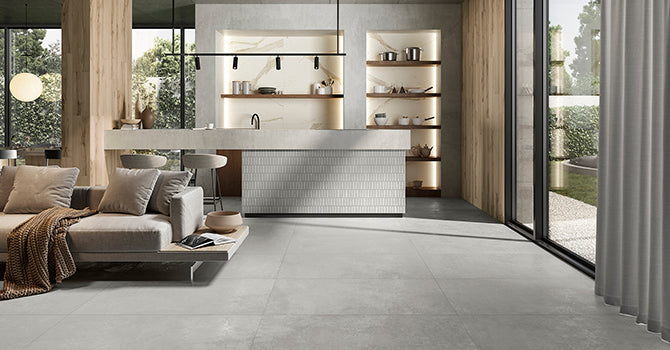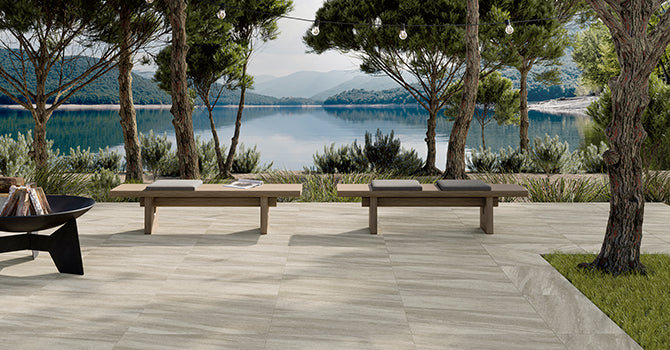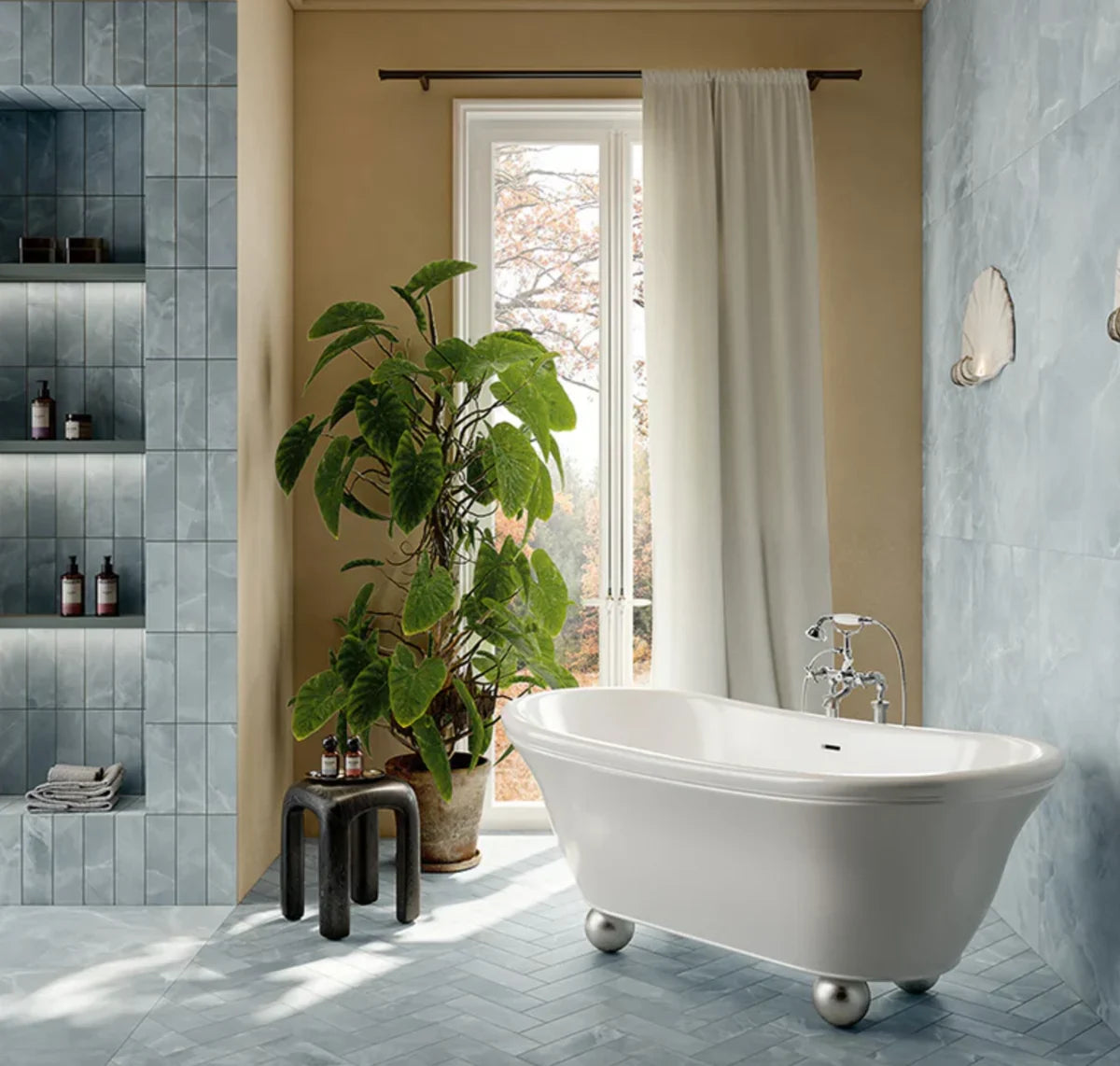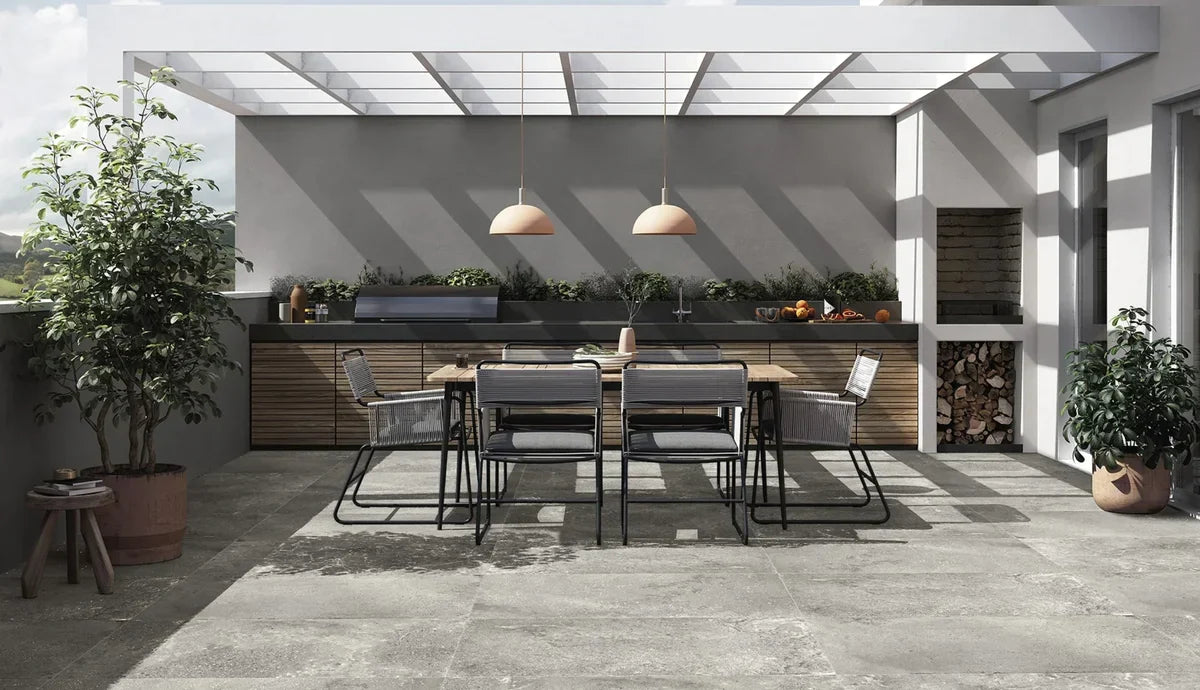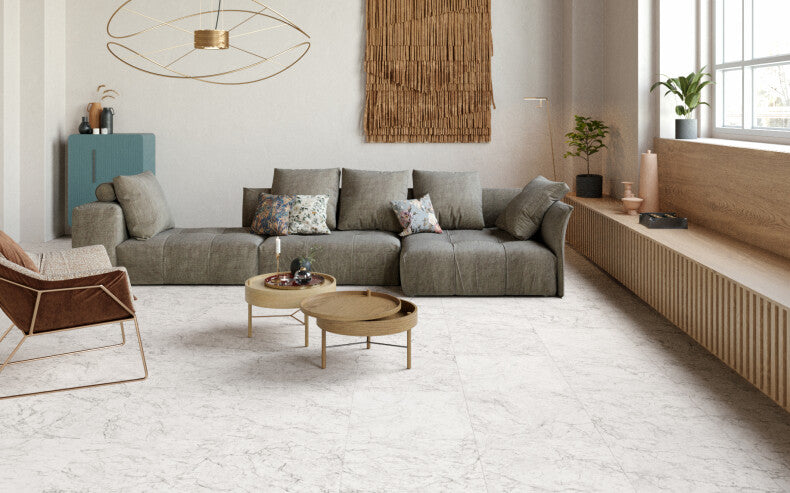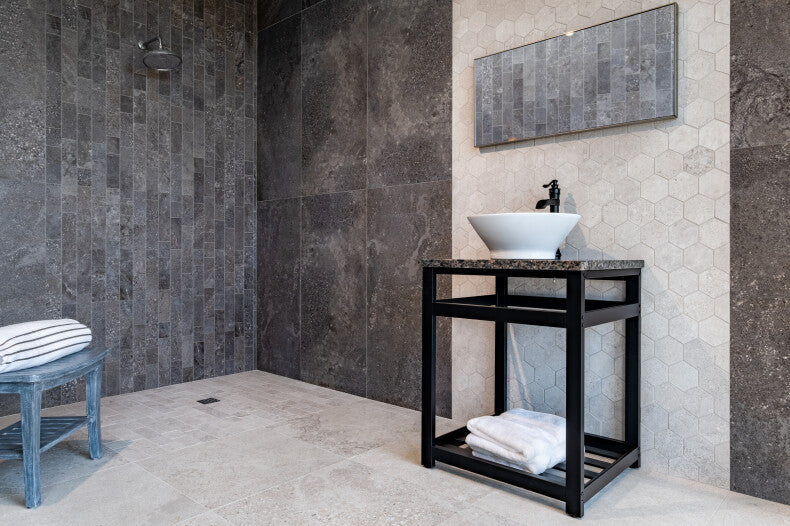When it comes to choosing the perfect floor, a variety of factors must be taken into consideration. In order to make the best decision for your space, it is important to choose a product that is long-lasting and will provide protection from anything life brings. During these uncertain times, having a safe, clean home is top priority. Luckily, porcelain tile is the perfect solution to keep your home the safest it can be without sacrificing design and aesthetics. Because it is made with natural materials, porcelain tile has a healthier advantage over other flooring options.
Free of harsh chemicals
Unlike other flooring materials, porcelain tile is free of formaldehyde. Formaldehyde is a colorless, strong-smelling gas that is found in many construction materials and household products – including particleboard, fiberboard, plywood, glues and adhesives as well as certain insulation. According to the Center for Disease Control, exposure to formaldehyde at high levels can irritate the skin, throat, lungs and eyes. Repeated exposure to formaldehyde can lead to respiratory illnesses and cancer.
Porcelain tile is also one of the few flooring materials free of volatile organic compounds (VOCs). VOCs are emitted gases from certain solids or liquids, found often in household products such as paint, varnishes, wax, cleaning and disinfecting solutions as well as a variety of building materials. There are a variety of health concerns and side effects related to VOC exposure, including nausea, dizziness, fatigue and eye and respiratory tract irritation. More severely, VOC’s can also lead to central nervous system, liver and kidney damage and adverse health problems relating to Sick Building Syndrome.
Unlike some vinyl flooring and installation materials, porcelain tile is free from polyvinyl chloride (PVC), a synthetic plastic polymer. PVC is a major source of phthalates, a dangerous plastic softener that was banned from children’s toys in 2008, and has been linked to cancer and damage to the immune and hormone systems.
Hypoallergenic
Porcelain tile is ideal for those who suffer from allergies or asthma as it contains no allergens and is very easy to maintain. Because its lack of porosity and hard, solid surface, porcelain tile cannot penetrated by allergens such as pollen, dust or dirt. Instead, allergens can be wiped away on the surface of tile with water. Porcelain tile’s nonporous surface is also impermeable to moisture and resistant to mold and mildew.
Safe
Porcelain tile improves home air quality for many reasons, and is one of the most important assets to have in unexpected situations. Unlike other flooring materials, porcelain tile is non-flammable, so it can be heated to extremely high temperatures and will not burn, produce smoke, or give off toxic fumes. Because of this porcelain can also help prevent the growth and movement of flames in case of a fire.
According to whytile.com, porcelain tile meets the flame spread and smoke development requirements of Section 803 of the International Building Code (IBC) and “can be used for interior ceiling and wall applications when other flooring options cannot.”
There are also a variety of slip-resistant porcelain tiles, making it perfect for any space.


